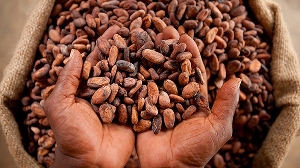Minister of Communications and Digitisation, Ursula Owusu-Ekuful, says the government is building the pillars to make Ghana the Information and Communications Technology (ICT) Hub for West Africa.
“We have implemented some fundamental digital initiatives to serve as the building blocks on which to propel sustainable growth in the digital economy we are building.”
“Initiatives such as the Mobile Money Interoperability platform, the Paperless Port system, National Identity Register, and Digital Property Addressing system have brought relief to our citizens and have propel the country’s digital agenda,” she said.
The Minister made these remarks during the opening of the 12th Information and Communications Technology for Development (ICT4D) event in Accra.
The global event organised by the Catholic Relief Services (CRS) and being hosted in Ghana for the second time, brought together over 600 experts in the ICT space to deliberate on ways to harness digitisation and technology for development.
Mrs Owusu-Ekuful said Ghana had joined the 4th Industrial Revolution to ensure that the country took advantage of the opportunities it offered to transform the economy and provide a firm foundation for growth.
She stressed that digitisation was necessary for development in the 21st century, saying, there cannot be development without the pursuit of digitisation in these times.
“We commenced our digital journey in 2017 with the Digital Ghana Agenda, a vision to leverage technology to deliver public services, promote transparency, efficiency, and easy access to all citizens irrespective of location,” she said.
Mr Daniel Mumuni, Country Representative of the CRS, commended the Government for its digitisation agenda to improve accessibility and productivity.
He said the Conference would explore how ICT and data innovations were making a measurable difference in millions of peoples’ lives and increasing the impact of humanitarian relief, development, and conservation programmes.
“We hope to also advance global knowledge exchange and build capacity on digital development to drive more impactful use of technology for good.”
“We are excited to be hosting this conference in Accra where over 700 people have gathered from different countries to the country,” he added.
Founded in 2010, the ICT4D Conference has grown each year to become an internationally recognized high-profile platform for NGOs, community-based organizations, private sector companies, governmental and multi-lateral agencies, investors, donors, academic and research institutions to exchange experiences in using digital technologies and learn from each other.

